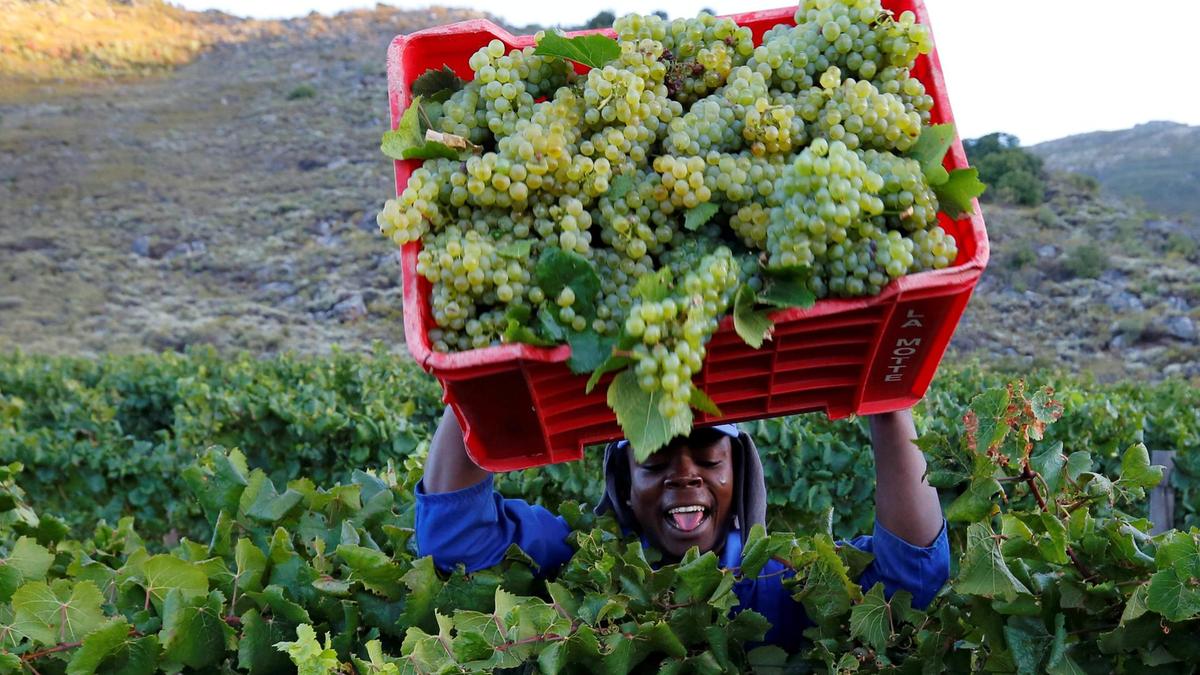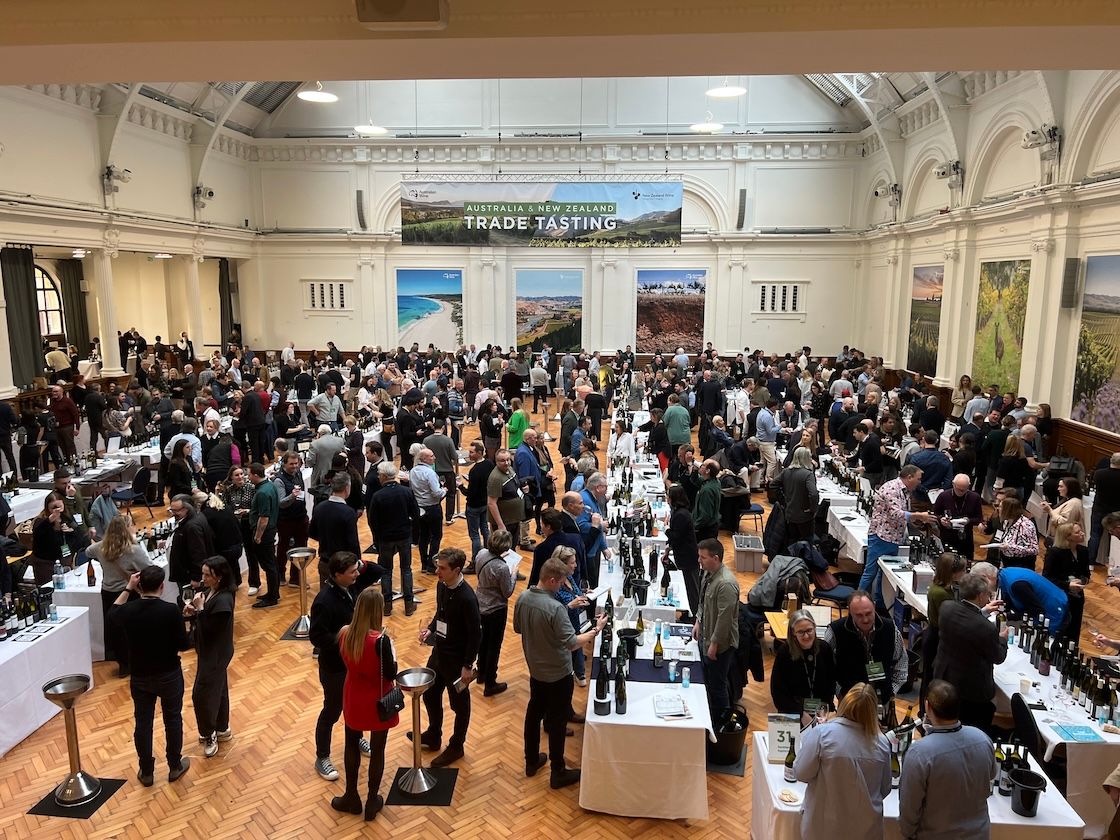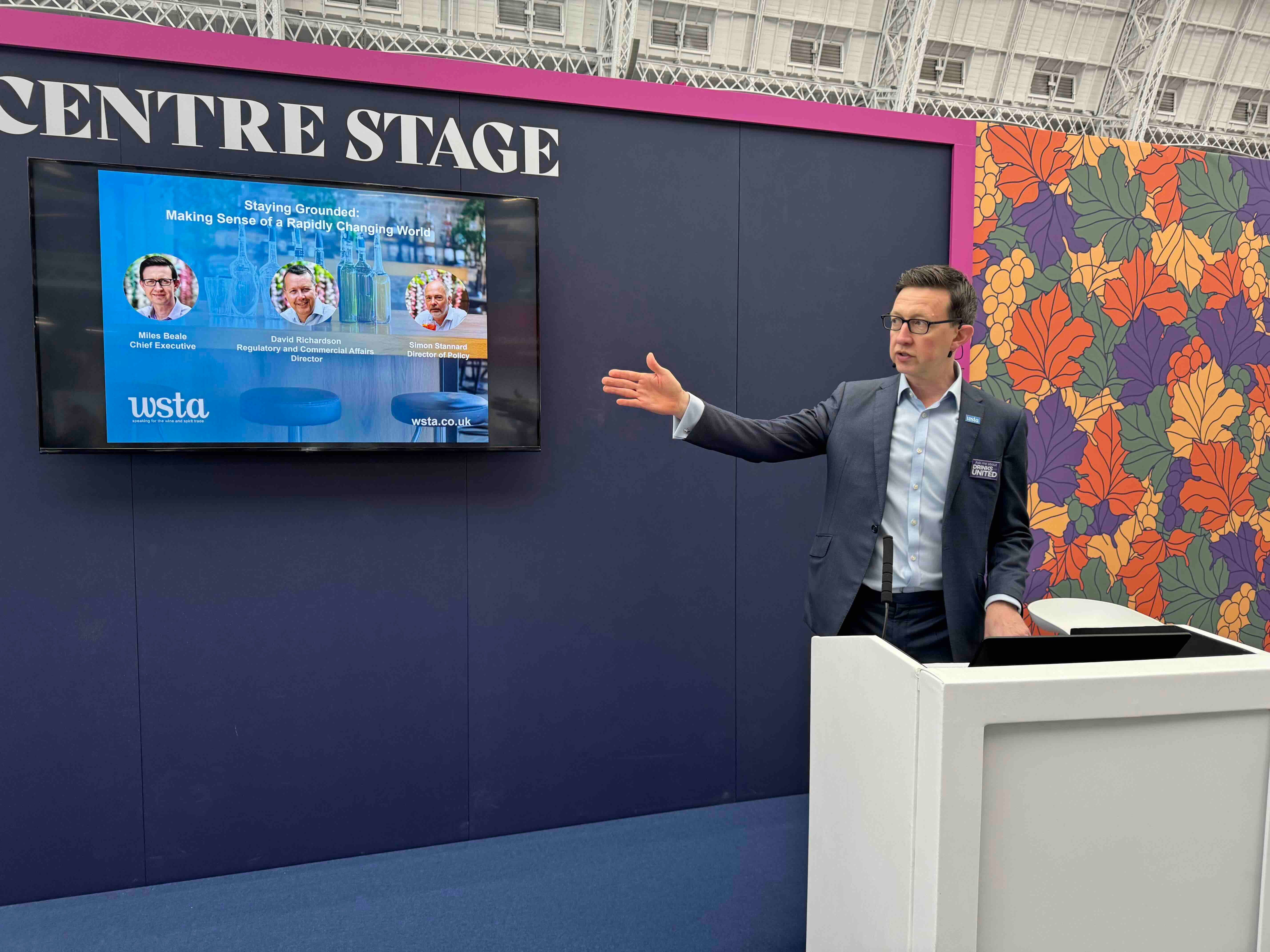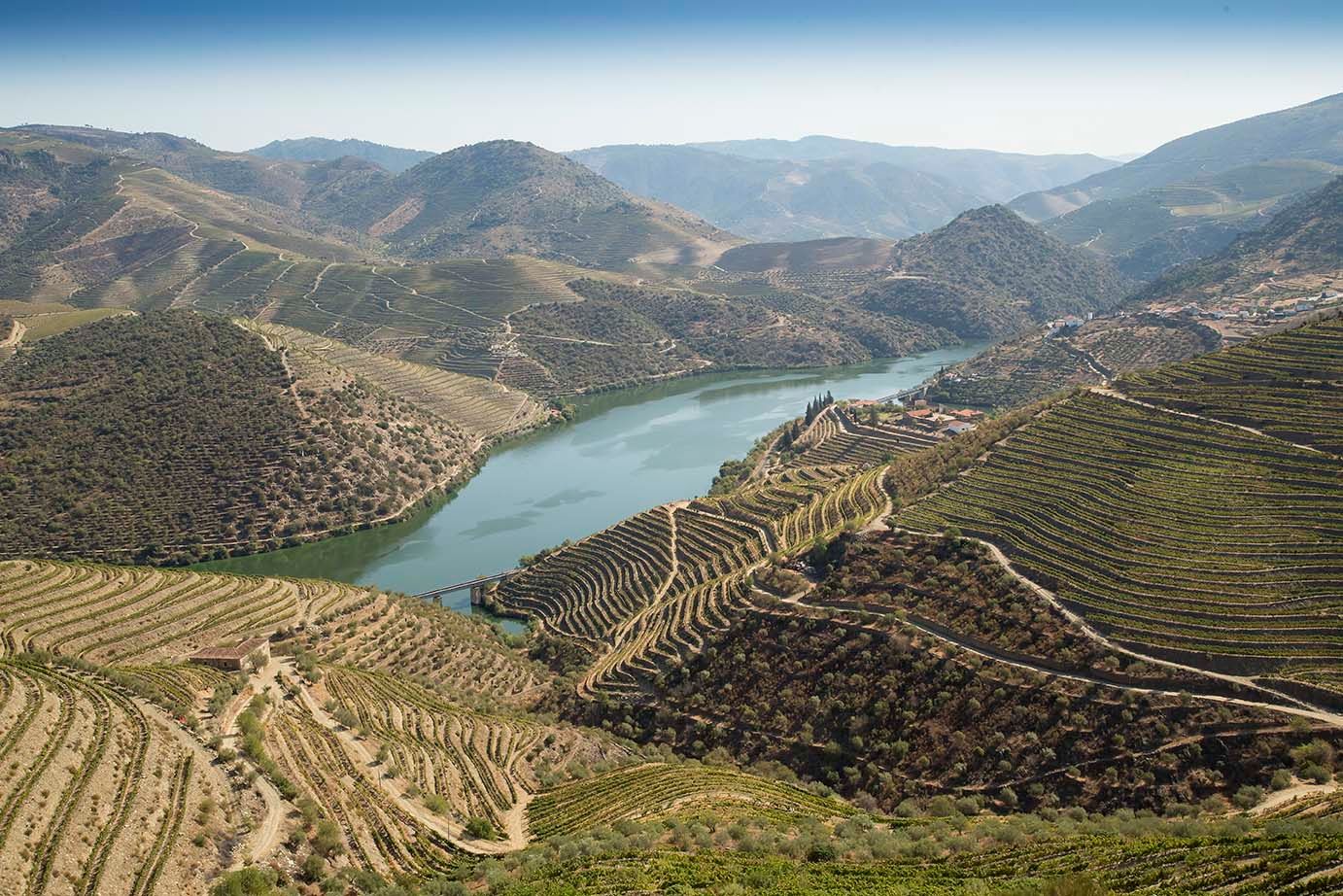As the dust settles on last week’s Cape Wine event in South Africa the industry’s workers, growers, producers and winemakers will be getting back to what they do best. Making wines in as a sustainable and ethical way as they can.
You can get just about anything you want in South Africa. Particularly as it has one of the world’s biggest and most important agricultural and farming industries. But what you can’t do is have a bath.
The last two to three years of drought like conditions across the Cape has taken its toll on the country. Even though dam levels have slowly recovered over recent months to around half their capacity, water shortages are still very much the topic of debate amongst locals and those tasked with being able to use what water there is to help in their particular line of farming or industry. The wine sector is no different.
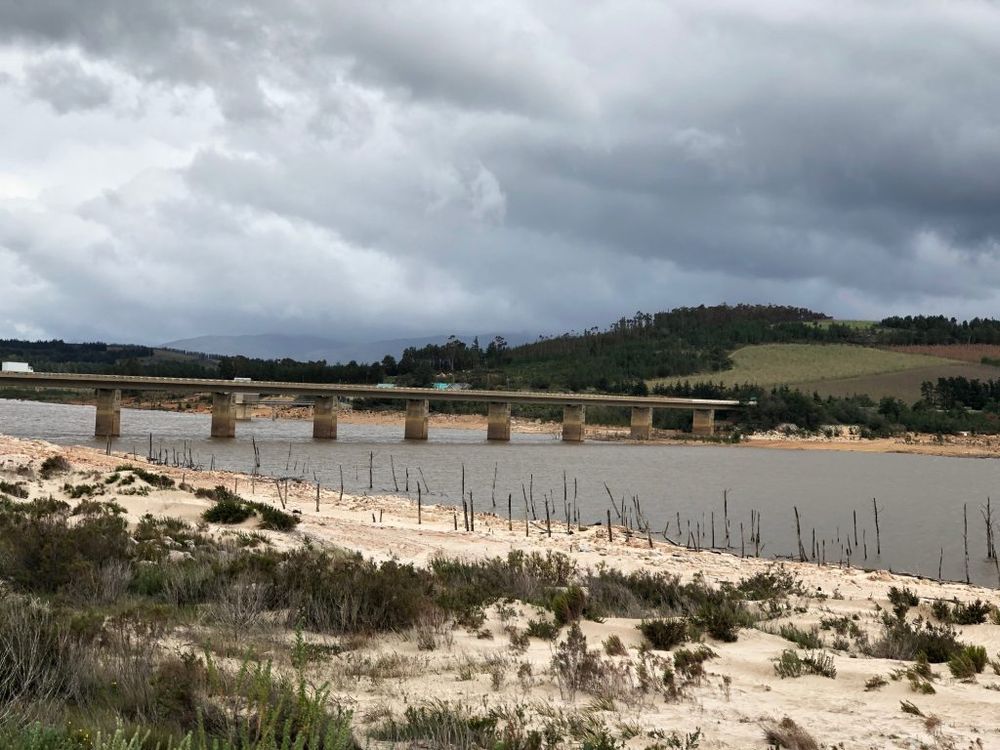
The Theewaterskloof dam in the northern central Cape is now 52.5% full and slowly recovering
The impact the lack of water has had on people’s everyday lives in South Africa is an all too present reminder of just how fragile our climate is becoming. It was also very much one of the central themes of last week’s Cape Wine event that took place in Cape Town.
The focus for this year every three-year event was quite rightly on the growing quality, consistency and reliability of this still burgeoning and growing wine industry, with buyers having flown in from all over the world to get their share of what has been an above average 2018 harvest.
Down to earth
But the opening seminar to Cape Wine also brought everyone down to earth. Yes, this is one of the most beautiful countries in the world, with hundreds of days a year of bright sunshine and perfect wine growing conditions. But it is also very much under threat from what appear to be increasing changes in the weather and it is everyone’s interest to put sustainability at the top of their business agenda, said Siobhan Thompson, chief executive of Wines of South Africa and the hosts and organisers of Cape Wine.
Carina Gous, chair of WOSA, widened the sustainability message out to look at the profitability and viability of the overall South African wine industry. In particular she spelt out the pressures it was now facing from a combination of a weak currency, and imbalanced wine structure, where two thirds of its wine exports are still in bulk over bottled wine, and the competition its farmers and grape growers were facing from other farming sectors to sell up and plant different and potentially more profitable crops.
So whilst on the surface all might look well and plentiful in the Cape it is these factors, combined with the changes in climate, and water shortages that all South African producers are having to wrestle with, before they even get chance to sit down and talk prices and agree trading negotiations with their international customers.
The smaller 2018 harvest was directly as a result of a near two year drought that might have resulted in wonderful wines of the highest quality, but with smaller yields the pressure has been on to raise prices. And not before time.
The low average price per litre that South African producers can command for their wines is the biggest issue facing the industry, warned Gous. Pointing to a chart that showed South Africa bottom of the top global wine exporters with average euro/litre ratio of €1.23 compared to €6.07 for France, €4.15 for New Zealand, €3.79 for the US, €2.17 in Australia and €.89 from Chile.
On the front foot
She urged producers and the industry as a whole to get on the front foot and tell the world about South Africa’s strong credentials as an ethically sourced, environmentally sound place to make wine, with schemes such as the world leading Integrity and Sustainability Certification that sits on every bottle of exported wine. Well 94% of them at least.
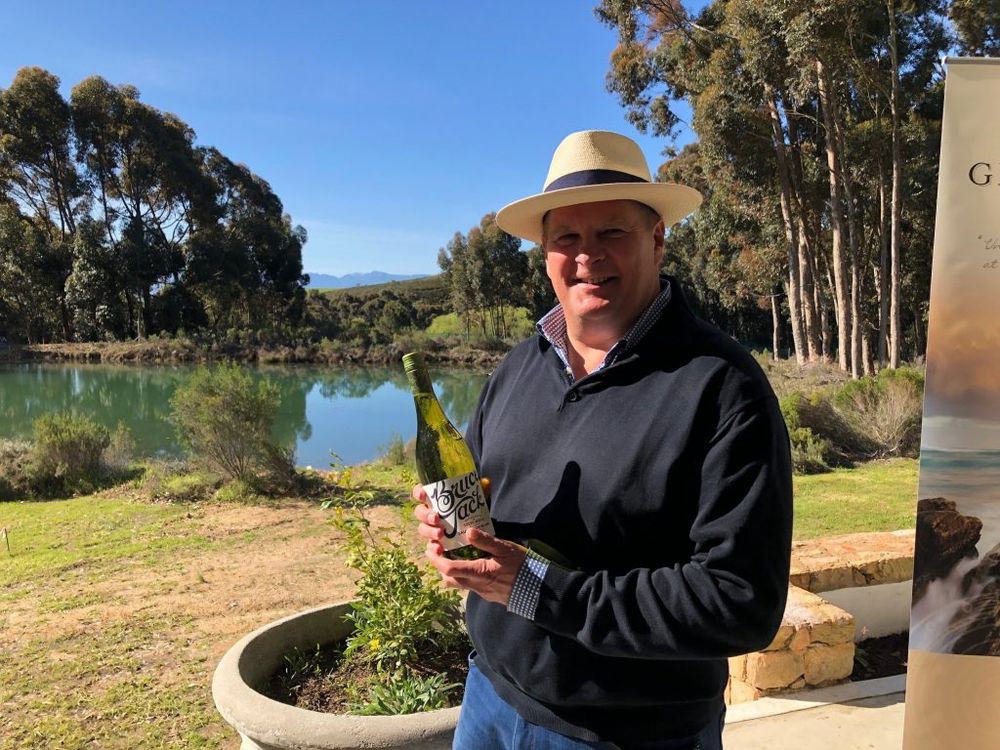
Bruce Jack urges the South African trade to talk about its traceability standards
Bruce Jack of The Drift Farm said South Africa should be rightly proud of the fact that every bottle has its own DNA line, thanks to the SAWIS accreditation that allows overseas buyers to track not only every bottle back to the producer where it was made, but down to the plots of land, and the vines, that all the grapes in that bottle came from. SAWIS currently estimates 96% of all wines in the country are registered. “No-where in the world comes close to that,” he said. “We really should talk about it more.”
Bernard Fontannaz at Origin Wine agreed: “The traceability of our wines is the best in the world. But we are not doing a good enough job talking about it and making it one of our unique selling points.”
The sustainability certification means 100% of the grapes comes from the area shown on the bottle and that the producer follows strict sustainable winemaking practices. It also goes further to cover good employment practices, a safe and healthy environment to work in where the producer pays the right living wage and offers housing rights.
The world over businesses, retailers, restaurants and individuals are looking to follow greener and more sustainable lives so it is only right that the wines they drink are also sourced from a country that puts sustainability high on the agenda, added Jack.
The big issue is how far are international buyers prepared to go to pay for those ethically sourced grapes. There was a sense of frustration amongst some major producers at the show that they were still being asked to squeeze prices on ethical and Fairtrade wines where the demands simply do not allow them to produce wine in that way.
South Africa is not in the market for mass produced, bottom of the table wines and buyer that come looking for them would have gone home disappointed.
Back to the future
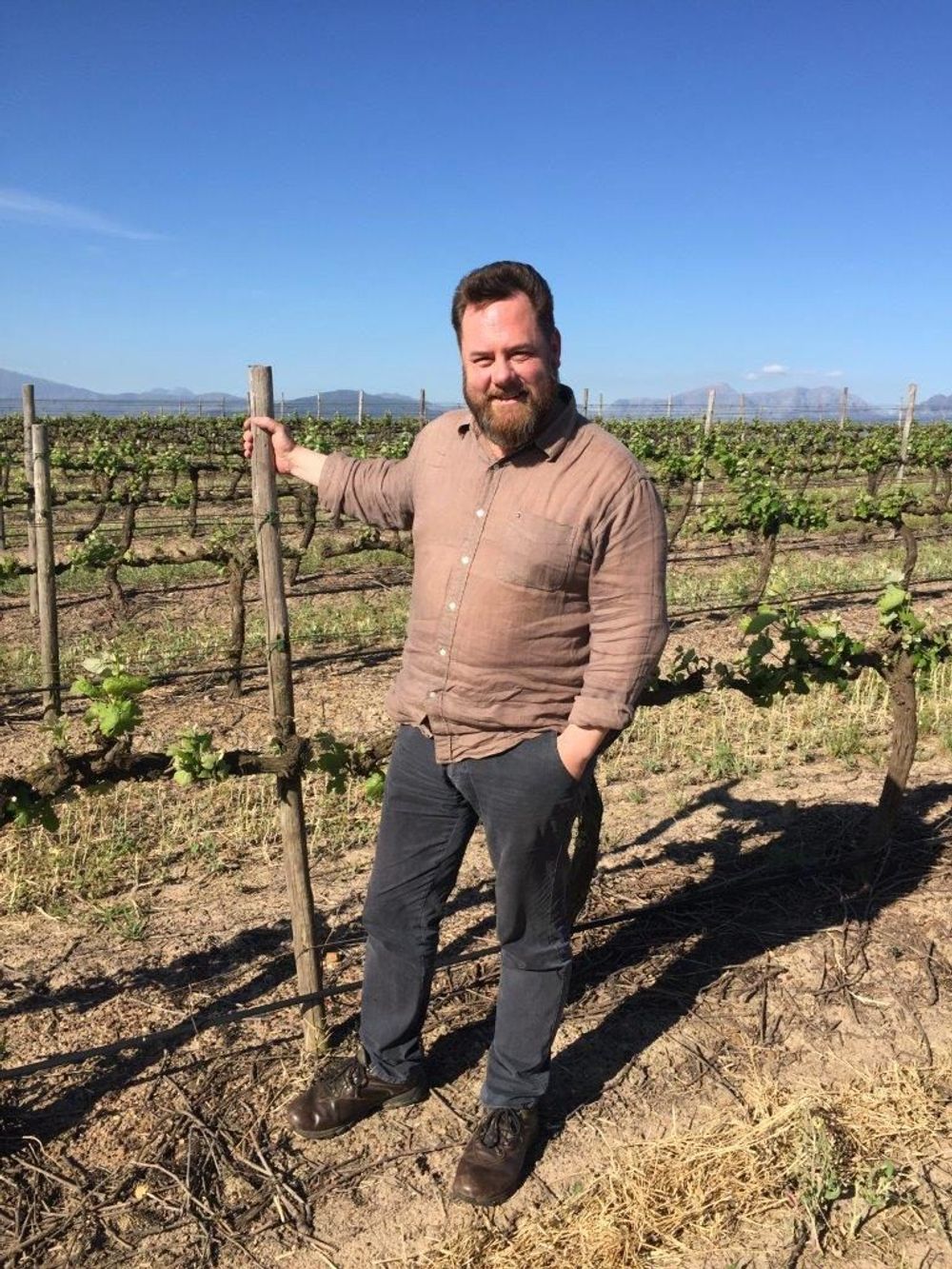
Andre Morgenthal along with viticulturist Rosa Kruger is helping to preserve and bring back to commercial life old vines of 35 years and older
Instead the country is much more focused on initiatives such as the new Old Vine Project that looks to encourage producers, and particularly co-operatives, to bring back to life vines that are 35 years or older. The idea being they can now create standalone wines that highlight South Africa’s strong heritage, taking wines that were previously destined just to go into a mass blend to have a commercial and profitable life of its own. It has also created its own seal on the bottle that will allow consumers to go directly to its website using a QR code and get all the information about the vine’s history and background.
An initiative that co-founder Rosa Kruger believes can only become more important to all producers and growers as climate changes takes even more effect and the pressure is on us all to “give life back to the soils and capture ever drop” of what they can offer. “We have to learn how our vines have been able to last 100 years.” Which might mean planting in different areas and using other varieties from other countries like Assyriko from Greece.
Global message
It’s why events such as Cape Wine are vital for South Africa’s future, said Gous, as it gives producers and winemakers the chance to build those long term relationships with key buyers and partners around the world. But that also means, she stressed, paying a sustainable price for its wines.
That’s certainly a message not lost on Rick Tigner, chief executive of California’s Jackson Family Estates , that is doing more than just buy wines from South Africa, it is making them as well. He said the business was firmly invested in the country and that its two properties, Capensis and Fijnbosch, were very much in it for the long term.
He said its long term goal as a producer was to make and promote premium wines wherever it can in the world and he saw no reason why South Africa could not play a healthy role in that market. He echoed Gous’s calls for more efforts to be made to improve the working conditions of those in the industry. To do that meant building wine brands that can fetch the prices to then drive that profitability and sustainability through your own supply chain. He said its strategy had allowed Jackson to sell its wines with an average price point of $16, whilst also paying its staff above the minimum wage.
Ethical trading
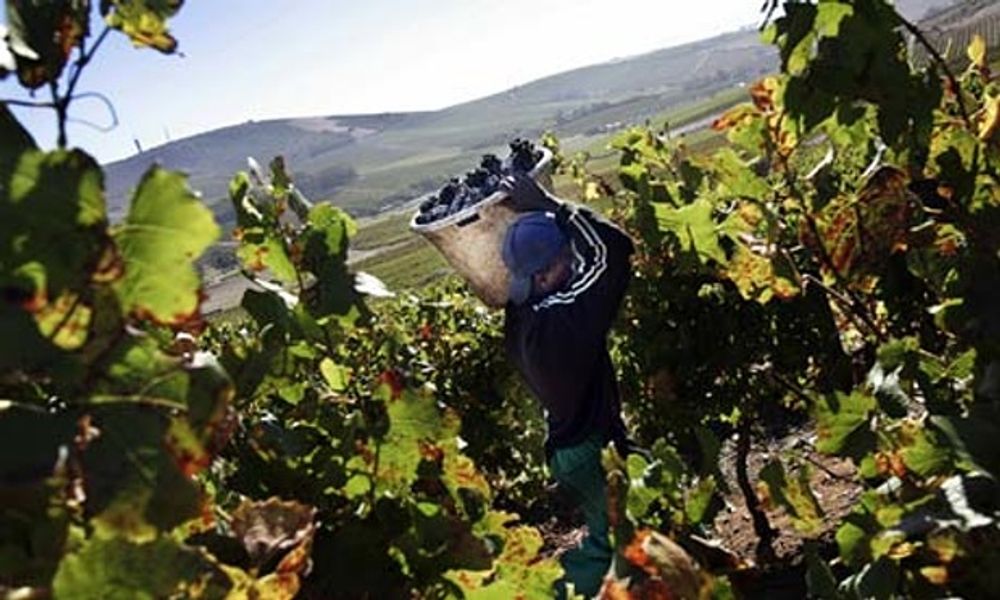
Workers rights are a paramount part of the South African wine sector
The WIETA (The Wine and Agricultural Ethical Trading Association) is very much helping South Africa demonstrate to global buyers the very real dedicated efforts being made in the vineyards and wineries to put sustainable and ethical production working and trading practices at the heart of what it does. The scheme also covers what steps are being taken by all wine businesses to help the working conditions of its staff as well as look at how ethically farmed every grape on their farm is being handled.
Which again does set South Africa apart as a wine producing country. This is not a country that makes wine for its own sake, but also as a means to help employment and the opportunities for everyone involved in the sector, particularly around education and housing of its workers.
The WIETA standard provides an ethical code that buyers from any country can use to know what practices are being used, says Eileen Herreilers, programme manager for WIETA. She says the country is currently 66% trading ethically but the long term ambition is to make it 100%. That effectively means that two thirds of all the tonnage of wine being produced in South Africa is ethically produced.
“Our job is to give producers the toolkit to help them trade ethically,” she added.
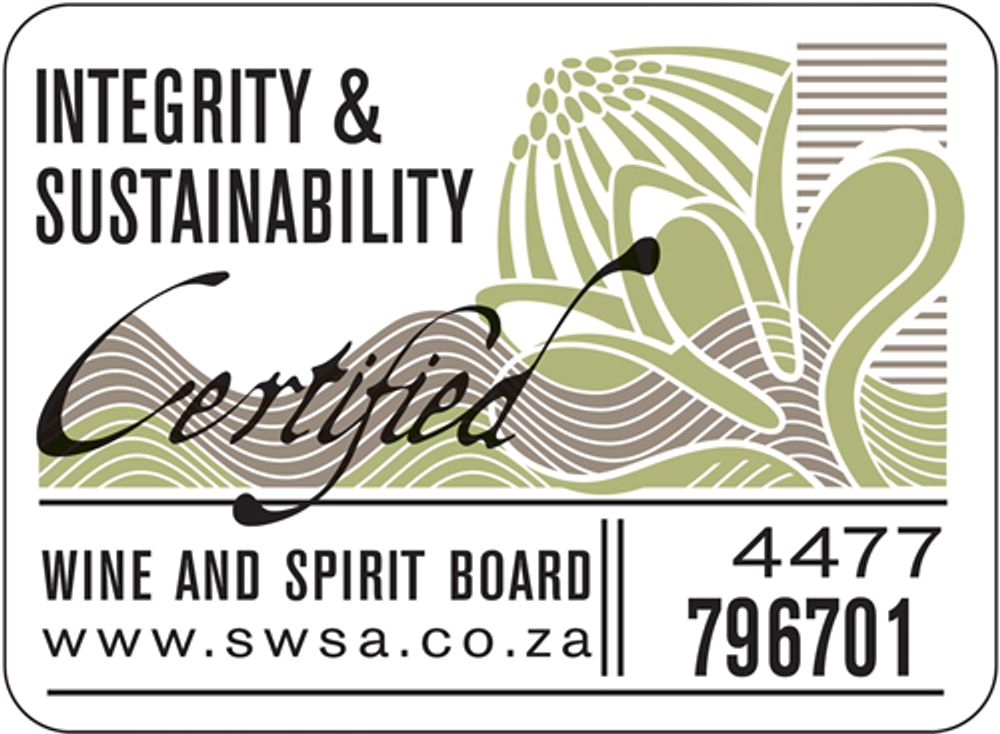
If you want to win a contract at the local Radisson Hotel the chances are you will need to prove as a drinks distributor what steps you are taking to give back to society and help all your workers in their everyday lives.
All the various schemes can, to be fair, be a little confusing as to what does what and where one stops and the other starts. Herreilers says steps are being taken to try and bring the various relevant codes and schemes together but then also stressed different international buyers had their own requirements and preferred one another in any case, like the Ethical Trading Initiative in the UK. “They have codes that are more relevant to them,” she added.
Tiger also returned to the issue of water management and the responsibility everyone in the sector has to control and ensure they are on top of how water is being used in their business. Similarly wine loss. For a business that was crushing 100,000 tonnes a year it could not afford to be losing even the 4% it does. Even bringing that down by 1% would have a major impact on its bottom line.
Andrew Milne from Spier said it was also important for those in the wine industry to reflect on their position in the local environment. Yes, their principle goal in life is to make good quality wine, but they are also custodians of the land they are using to make it. So that means looking after the soils, the water table, the waste they are producing.
Viable buyers looking to successfully trade and do business in South Africa need to understand the market they are working in. Simply coming with the rule books and pricing negotiations used for other major countries is not going to work, or go down well in a country that is 100% focused on helping all its workers and not just those of its buyers and sellers.
